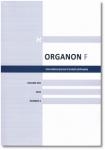Animalism and the Vagueness of Composition
Animalism and the Vagueness of Composition
Author(s): Radim BělohradSubject(s): Epistemology, Early Modern Philosophy
Published by: SAV - Slovenská akadémia vied - Filozofický ústav SAV
Keywords: Animalism; Lockeanism; partial identity; personal identity; supervaluations; vagueness;
Summary/Abstract: Lockean theories of personal identity maintain that we persist by virtue of psychological continuity, and most Lockeans say that we are material things coinciding with animals. Some animalists argue that if persons and animals coincide, they must have the same intrinsic properties, including thinking, and, as a result, there are ‘too many thinkers’ associated with each human being. Further, Lockeans have trouble explaining how animals and persons can be numerically different and have different persistence conditions. For these reasons, the idea of a person being numerically distinct but coincident with an animal is rejected and animalists conclude that we simply are animals. However, animalists face a similar problem when confronted with the vagueness of composition. Animals are entities with vague boundaries. According to the linguistic account of vagueness, the vagueness of a term consists in there being a number of candidates for the denotatum of the vague term. It seems to imply that where we see an animal, there are, in fact, a lot of distinct but overlapping entities with basically the same intrinsic properties, including thinking. As a result, the animalist must also posit ‘too many thinkers’ where we thought there was only one. This seems to imply that the animalist cannot accept the linguistic account of vagueness. In this paper the author argues that the animalist can accept the linguistic account of vagueness and retain her argument against Lockeanism.
Journal: Organon F
- Issue Year: 26/2019
- Issue No: 2
- Page Range: 207-227
- Page Count: 21
- Language: English

